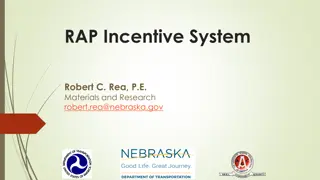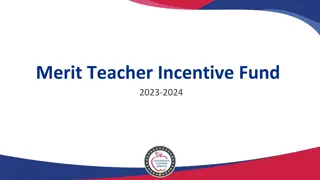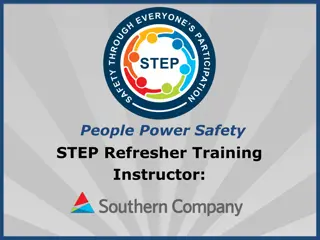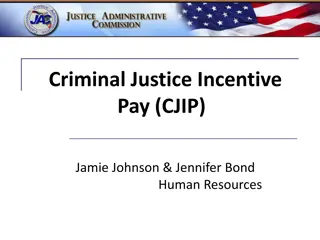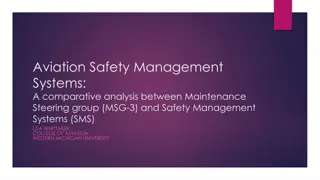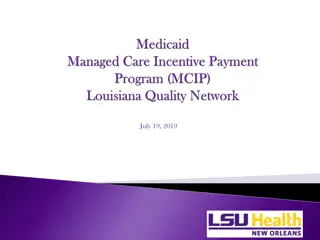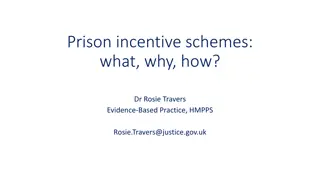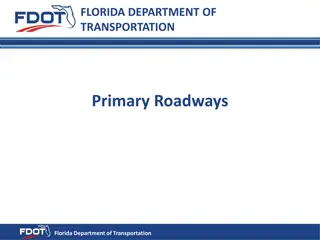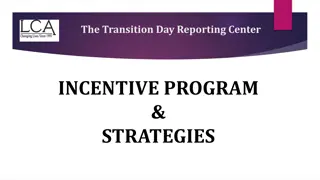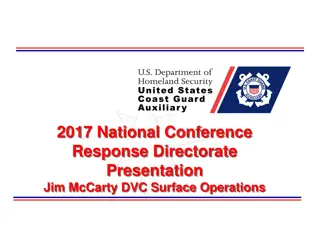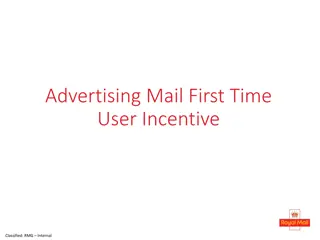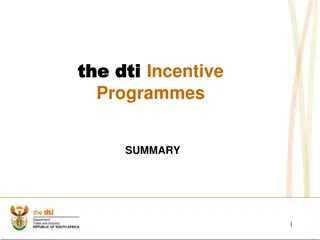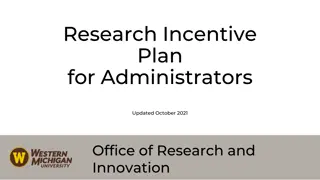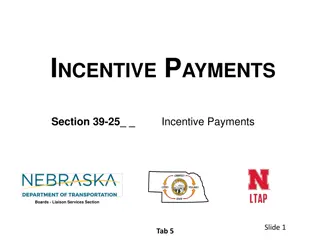Tips for Implementing a Safety Incentive Program
Learn how to effectively run a safety incentive program by understanding tax rules, designing good incentive programs, and avoiding pitfalls such as OSHA concerns and overtime pay issues. Discover the importance of tangible awards, eligibility criteria, and employee recognition in creating a successful safety incentive program.
Download Presentation

Please find below an Image/Link to download the presentation.
The content on the website is provided AS IS for your information and personal use only. It may not be sold, licensed, or shared on other websites without obtaining consent from the author. Download presentation by click this link. If you encounter any issues during the download, it is possible that the publisher has removed the file from their server.
E N D
Presentation Transcript
How to Run a Safety Incentive Program GEORGE B. DELTA, ESQ COUNSEL TO THE
How to Run a Safety Incentive Program Safety Programs and the Law Taxes Rules for Incentive Awards Tax Rules for Safety Incentives OSHA Hostility New Incentive Rules Good and Bad Incentive Program Design
How to Run a Safety Incentive Program Defining Safety Incentives for Tax Purposes Employee Achievement Awards are for Safety and Length of Service Programs Tax Deductible if Meet Criteria Award is Tangible Personal Property (i.e., merchandise awards) Meaningful Presentation Does Not Amount to Disguised Compensation
How to Run a Safety Incentive Program Tax Rules for All Employee Achievement Awards Not a Substitute for Cash Bonuses, Annual Raises Average Cost Per Employee Must Be Less Than $400 Award Cannot Be Cash or a Bank- Issued Gift Card Awards of Nominal Value Excluded if Written Plan Exists
How to Run a Safety Incentive Program Tax Rules for Safety Achievement Award Incentive Programs Tax Deductible Until 10% of Eligible Employees Receive a Safety Award, But
How to Run a Safety Incentive Program Overtime Pay: A Lurking Hazard in Safety Incentives If Improperly Structured, Safety Incentive Awards Can Create Overtime Problems
How to Run a Safety Incentive Program OSHA s Hostility Towards Safety Incentive Programs Despite Considerable Evidence to the Contrary, the Occupational Safety and Health Administration (OSHA) Believes Safety Incentive Programs Might Lead Employees to Underreport Injuries
How to Run a Safety Incentive Program The New OSHA Rules Any Adverse Action Against an Employee Who Reports a Work-Related Injury or Illness, Including Withholding a Safety Award, is a Violation
How to Run a Safety Incentive Program The Two Types of Safety Programs 1) Rate-Based Safety Incentives Bonus or Prize for Hitting Low or No Injury Rate Many Would Violate the New OSHA Regulations OSHA Believes These Programs Will Discourage Injury Reporting
How to Run a Safety Incentive Program The Two Types of Safety Programs 2) Behavior-Based Safety Incentives Rewards Employees for Attending Safety Meetings, Reporting Near Misses, Practicing Safety Behaviors May Also Reward Employees For Identifying Hazards and Suggesting Safety Improvements Compliant With the New OSHA Regulations
How to Run a Safety Incentive Program Poor vs. Good Safety Program Design Peer Pressure Can Discourage Reporting i.e., A Rate-Based Safety Incentive in which the Whole Team Loses an Award if One Member Reports an Injury
How to Run a Safety Incentive Program Blurred Lines If the Goal is Reducing Workplace Injuries, There Will Be Some Overlap Between Rate-Based and Behavior- Based Safety Incentive Programs. Where OSHA Draws That Line is Unclear, However
How to Run a Safety Incentive Program To Summarize: Safety Incentives Reduce Injuries, Save Money, and Improve Morale According to the U.S. Bureau of Labor Statistics, the total number of injuries to workers has been dropping for over a decade, in large part because many companies, especially larger ones, have adopted safety programs
How to Run a Safety Incentive Program GEORGE B. DELTA, ESQ Counsel to the Incentive Federation, Inc. 805 15th Street, N.W., Suite 100 Washington. DC 20005 (703) 582-7040 gdelta@verizon.net











